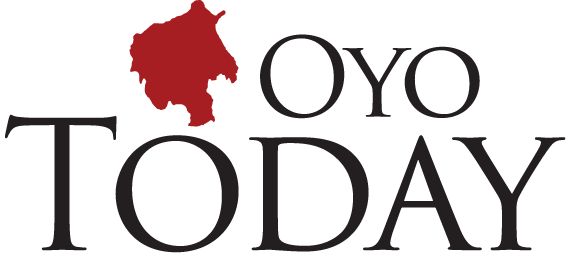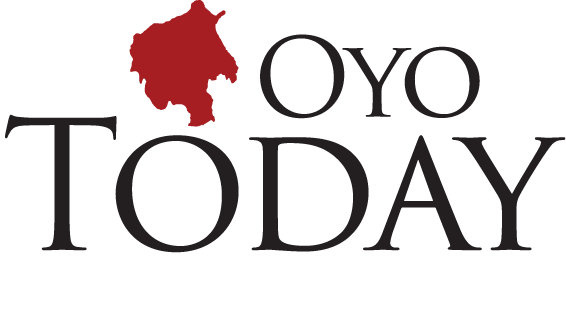 The Covid 19 global pandemic affected people of the world in several, unique and diverse ways, Mrs Idy Toye – ARULOGUN is an author enabled by the lock down during the out break of Covid 19. The clothing, culture and culinary enthusiast tells her story to City News.
The Covid 19 global pandemic affected people of the world in several, unique and diverse ways, Mrs Idy Toye – ARULOGUN is an author enabled by the lock down during the out break of Covid 19. The clothing, culture and culinary enthusiast tells her story to City News.
1. Your cook book ‘Calabar Love Potions’ Revealed! is one of those featured as content for “Nigeria Cook Book” by the Nigeria Embassy in Hungary. How did you make it?
Well, interestingly, the embassy was working on their publication at about the time ‘Calabar Love Potions’ Revealed! was released. I engaged in digital media promotions as part of the launch plan for the book given the restrictions in movements and gatherings and i believe some of the promotional activities caught the attention of the embassy officials. They approached me seeking to make use of some of the recipes I featured in the book in their own publication which is titled – ‘Nigeria Cook Book”. I assented to their request and here we are. Talk about perfect timing!
2. What motivated the writing of the book?
The love of cooking!
I am home bred.
I grew up in Uyo, Akwa Ibom State and witnessed the cooking of a lot of these meals.
The average person from Akwa Ibom or Cross River States of Nigeria knows about food and brags about it.
Meals from this region are greatly loved world wide for their taste and variety.
I seized the opportunity available to me to capture these meals and document them in a book form for posterity and to avoid some of them getting extinct, since quite a number of these meals are hardly cooked these days as everyday meals, especially those that are time consuming in their preparation.
It’s just not about Edikang Ikong, Afang and Ekpang Nkukwo.
I needed to let the world know that.
3. How are Nigerians reacting to it?
Firstly, they find the title very intriguing. You know there is this myth about Calabar Women using food as love potions for men. Let me also emphasise that anybody from Cross River or Akwa Biome State is typically referred to as “Calabar” by Nigerians. Nigerians also enjoy traditional meals, so people are loving it. Most people however want the food along with the book. I therefore get requests for cooking some of the meals. In some extreme cases, i get enquiries about the location of the restaurant. Of course, there is no restaurant but people see beyond the book to demand for the food.
4. You also authored a second book titled “My walk Muse”. What was the motivation for it?
It started my my writing personal humorous short stories on Facebook which my audience loved. These were stories that came to me as I did my morning walks. Stories that reminded me of events in the past or even current events which I put down and shared with my audience.

Social media is a very interesting place. You can be out there just having fun doing your own thing and find out that you actually have an audience following you and cheering you on.
My write ups got some people interested and they encouraged me to compile the stories.
The outbreak of Covid 19 caught me in Atlanta, in the U.S. Weeks of lock down in a foreign land meant that i had a lot of time on my hands. It became imperative that i used my time judiciously. Writing became the escape for me. Too many negative and scary stories in the traditional and new media meant one needed to face other issues and tasks to avoid being immersed in the gloomy scenarios of the pandemic. I decided to clean up my writing of the two books and got them published. So Covid 19 made me a two time author.
5 Your Second book, ’My Walk Muse’ is full of humorous stories. Was that deliberate?
Naturally I love to laugh. I find humor in almost anything, just like most Nigerians. That’s the reason my brain stored humorous events and walking in the mornings, I usually see something that just reminds me of some of those events. Intriguingly, the reminders typically happen when I walk.
It became quite stimulating and encouraging to walk, just so that I’ll see something that will remind me of something.
For instance, seeing a boy riding a bicycle reminded me of my children when they were young, reminding their father of his promise to buy them bicycles in Mega Plaza, Victoria Island and their father telling them he promised to buy, but theirs will be bought at Ojuelegba.
6 Are you a professional writer or it is just your hobby?
I’m not a professional writer, though I admit I have some reasonable ability to string a few words together. Since I love story telling, it became just natural to put down the stories.
Even with that, one still needs inspiration and of course content. My content were all around me. Writing is an art. There are different genres of writing and of course you write according to your gift. My style is free flowing easy to read humour laden prose using events and happenings within my environment. On the other hand, i was able to to put a cook book together with some deep and serious research into the cuisine of my people which is nationally and globally acknowledged as one of the best in terms of culinary culture. The presentation is also very methodical such that it is not just for reading but a practical guide to cooking the great meals contained in the book. For me, it serves as a compendium for the documentation of the rich food culture of South Eastern Nigeria.
7 You are also into the fashion business and your clothing line is intriguing as you have a bias for male clothing. Any reasons for this?
I’ve always liked making clothes for men. Contrary to what a lot of people think, a lot of men are actually fashionable and love to dress well. Also, men are easy to please and uncomplicated, more likely than not, to be appreciative of whatever effort you put in making their clothes. The male kaftan has witnessed a lot of style transformation, dynamism and functionality. Even the Agbada, has taken a life and style of its own over the years in fashion. So men are competing favourably with the women in terms constant fashion re-engineering. Men also pay on time too. Having said that, lately I have succumbed to making easy to wear clothing for women on demand. But our bias is still for male clothing.
8 What challenges do you face as a fashionpreneur?
I’d say human capacity. Recruiting and retaining good staff, especially good tailors can be very challenging. Even the ones who come in from neighbouring countries in no time imbibe the Nigerian poor work ethics and culture. However, these days, i have devised strategic ways and approaches of overcoming these challenges in order to forge ahead and remain in business.
9 I observe that you are also involved in humanitarian work, how did you get involved in them?
Life throws different kinds of curves and we make a choice to either respond or react. I try to impact other lives for good wherever I can. In this regard, I express myself in various foundations as either a co founder, member or volunteer in other organizations.
One of such foundations is Advocacy Against Negligence in Schools (AANIS), co – founded by my husband and I, after the traumatic experience of losing our only daughter in a boarding school under negligent circumstances.
So we set up AANIS with the core focus to raise awareness for, as well as monitor health and safety standards in Nigerian schools. AANIS is also committed to championing the cause for safer environments, better health management systems and more sensitive care providers in schools for the benefit of our children and the nation’s future.
I’m also the project lead of Suicide Is No Solution (SINS), an anti-suicide initiative.
Having noted how deaths by suicide in Nigeria was on the rise, we set up SINS as a corporate social responsibility endeavour. Our key task here is to champion the drive for a significant reduction in the rate of deaths by suicide in Nigeria through a strong public enlightenment and advocacy campaign that dissuades citizens from killing themselves because as we say, SUICIDE IS NO SOLUTION.
10 How easy was it to get published by Amazon?
Amazon has the facility for self publishing. However it is only easy if you know what to do. I chose to get a publisher who was more conversant with the whole idea of self publishing. I therefore out sourced that task which in my opinion was not my area of core competence. With technology, it is not really as difficult as most people think, i just decided it was not going to be my lot.
11 What will be your advice to other women who have stories to tell and can’t seem to get it out?
Everybody has a story to tell and the world is waiting to hear these stories.
I would say you must first of all have the desire to write a book on the subject matter of your interest. The desire will propel you to the next stage, the actual writing. Writing is where a lot of people give up or abandon the idea.
In order not to burn out, you can pace yourself, maybe write a page or 2 a day.
I believe it’s best to write on a subject matter that interests you. Put down your ideas and grow it daily. Soon you’ll see it grow and the world will have access to your story before you know it.
Alternatively, some people tell their stories to ghost writers who do the actual writing.
I guess it’s okay to do what works for you.
Also, I would advise people to get professional help and not try to do everything by your self. In my case, I refused to afford an editor, so it was quite strenuous trying to do everything. I believe it is easier for an editor to spot errors than the author


